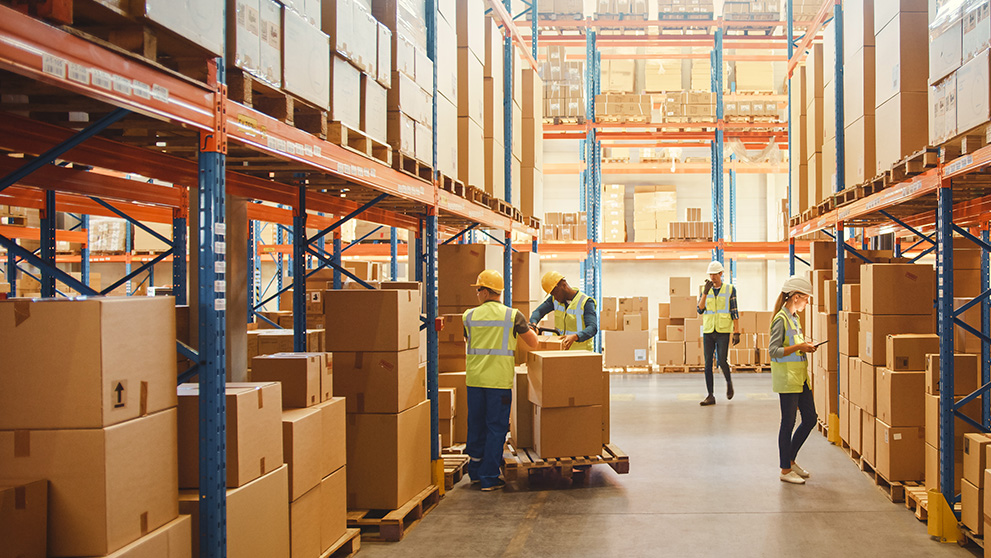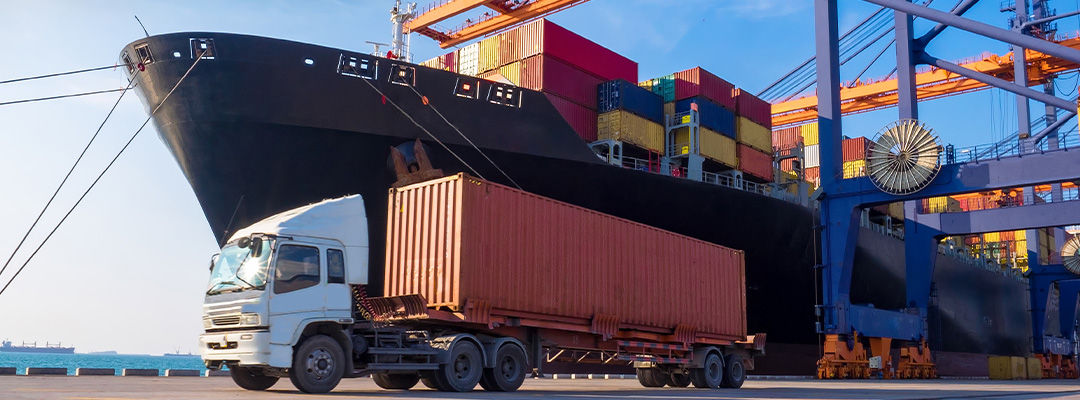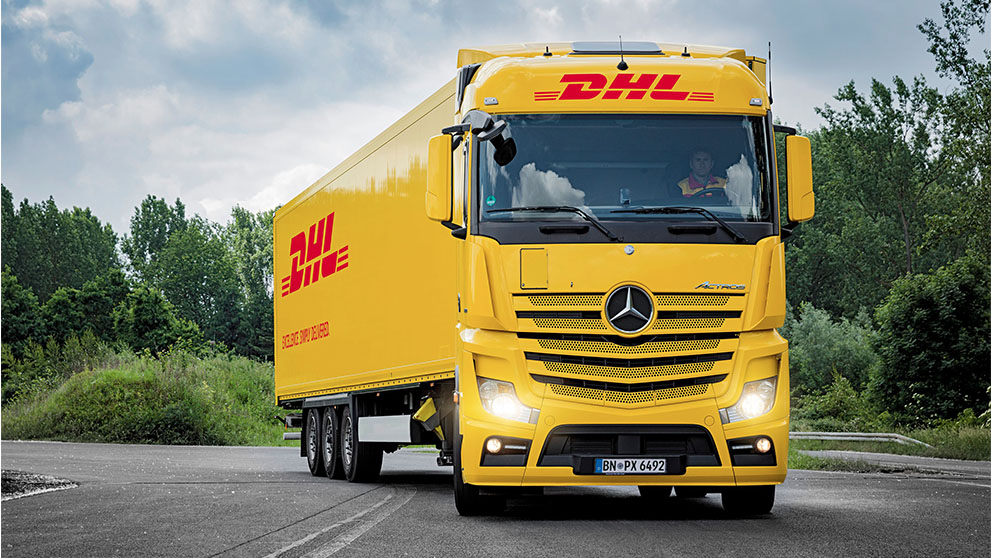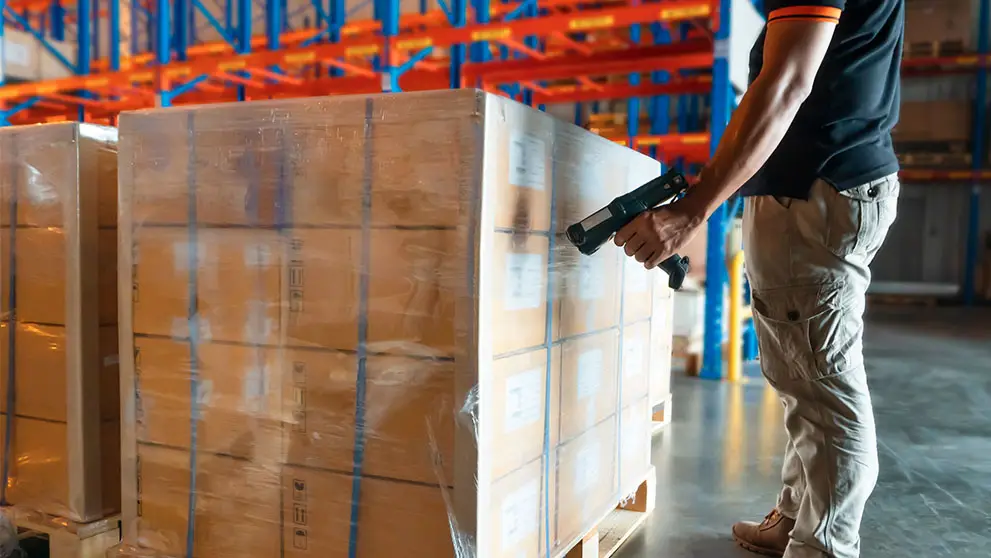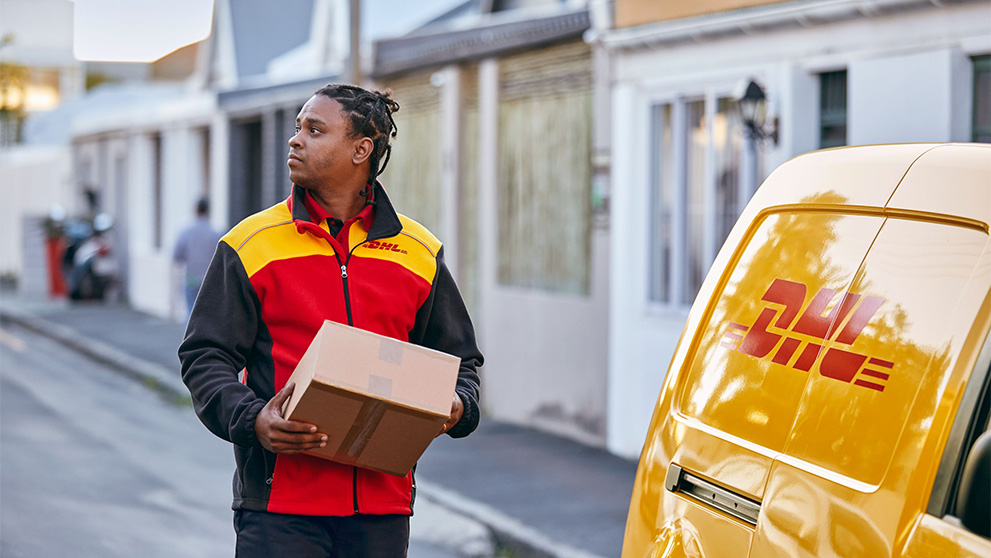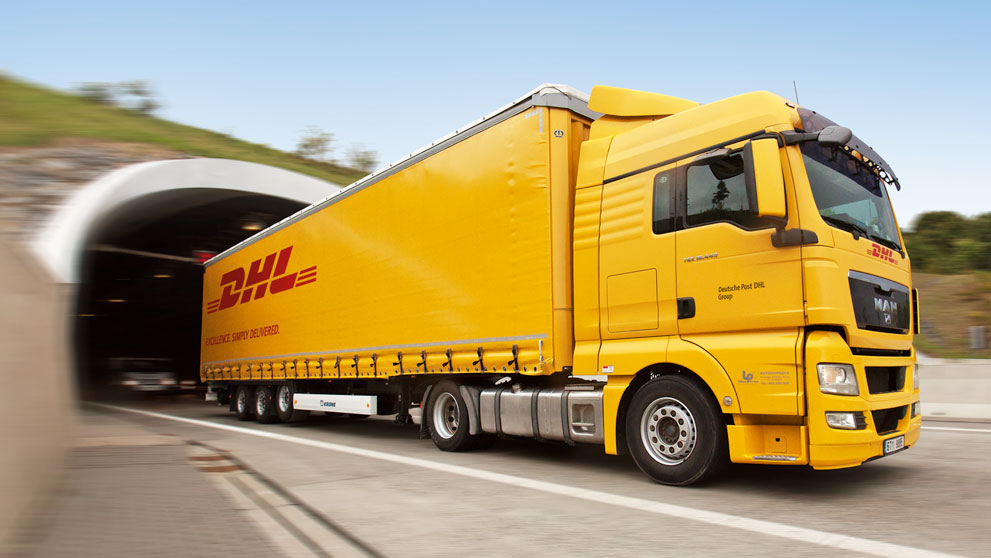Logistics is the backbone of modern commerce. Ensuring the right products reach the right customers at the right time, all while optimizing costs, is the cornerstone of business success. But what exactly is logistics? In this comprehensive guide, we will unravel the intricacies of logistics, exploring its core definition, the processes that drive it, the diverse functions it serves, and real-world examples of its impact. By understanding the critical role logistics plays in your operations, you'll be equipped to streamline your supply chain, enhance customer satisfaction, and ultimately boost your bottom line.
Navigating the complexities of logistics can be daunting, especially when you should be focusing on running your business. DHL Express, a global leader in logistics, offers a comprehensive suite of tailored solutions designed to simplify your supply chain. From international shipping and warehousing to customs brokerage and e-commerce fulfillment, their expertise and global network can help you optimize your logistics operations and achieve your growth objectives.
What does logistics mean?
Logistics is the behind-the-scenes hero of your business, ensuring that everything runs smoothly from the moment a product is made to the moment it reaches your customer’s hands. It’s about more than just moving goods – logistics is about smart planning, careful coordination, and efficient execution.
Whether it’s managing inventory, handling transportation, or optimizing packaging, logistics keeps your operations flowing smoothly. For all businesses, getting logistics right can mean the difference between a one-time purchase and a loyal, lifelong customer. By streamlining the movement of products, you can cut costs, stay competitive, and keep your customers coming back for more.
Logistics is:
- The lifeblood of supply chains that ensures the efficient flow of goods and materials, enabling businesses to operate smoothly.
- A complex network of interconnected activities involving transportation, warehousing, inventory management, order processing, and more.
- A critical driver of customer satisfaction ensuring products reach customers on time and in good condition.
- An essential component of global trade facilitating the movement of goods across borders, connecting producers with consumers worldwide.
- Worthy of serious investment as efficient logistics can lead to cost savings, improved customer service, and a competitive advantage.
Logistics is not:
- An afterthought or something to be left to the last minute: logistics requires careful planning and execution.
- The supply chain: It is a part of the broader supply chain, which encompasses the entire network of activities involved in sourcing, production, and distribution.
- A function your business needs to do itself: Logistics can be easily outsourced to specialized providers like DHL Express, who offer expertise and resources to optimize your supply chain.
What is logistics management?
Logistics management is the strategic side of logistics, involving the procurement, movement, and storage of materials, parts, and finished inventory (goods and services) from their point of origin to point of consumption.
The ‘Seven Rs’ is a popular way to define the goal of logistics management:
- Get the right product
- At the right quantity
- At the right time
- In the right condition
- To the right place
- And to the right customer
- At the right cost
Get all of these, well, right, and your business will stay competitive.
What does logistics mean in business?
In business, logistics is all about managing the journey of goods – from sourcing raw materials to delivering the final products to customers. It covers everything from inventory management and warehousing to transportation and order fulfillment. When logistics runs smoothly, products get to where they need to be, right on time. It’s not just about getting things from point A to point B; it's about keeping costs down and making sure customers are happy with the service. In short, good logistics can make a big difference in your company’s success and ability to stay competitive.
Logistics vs supply chain management
Logistics and supply chain management might seem like the same thing, but they actually play different roles. Think of supply chain management as the big picture – it’s all about overseeing everything from sourcing raw materials to getting the final product into the hands of your customers. It involves coordinating various players, many of whom you may not have direct control over.
Logistics, on the other hand, is where you have more influence. It's about the hands-on management of moving and storing your goods – like handling warehousing, transportation, inventory, and fulfilling orders. By focusing on optimizing these areas, you can streamline operations, cut costs, and keep your customers happy, even if the larger supply chain has its challenges.
Types and examples of logistics
E-Commerce logistics
If you sell online, how you handle e-commerce logistics can make or break your business. It’s all about getting your products from your virtual store to your customer’s doorstep, fast and flawlessly. From inventory management and warehousing to packing and last-mile delivery, nailing this process ensures that your customers get their orders on time and in perfect condition – building trust and boosting their overall shopping experience.
Freight logistics
Freight logistics is your ticket to moving large shipments over long distances, whether you’re bringing in products from overseas or distributing them across regions. It involves multiple forms of transportation – like trucks, ships, and planes – and includes crucial services like freight forwarding and customs brokerage. If you're trading globally or managing large-scale supply chains, it's freight logistics that keep your goods moving.
Third-party logistics (3PL)
If logistics isn’t your thing, but you want the benefits of expert handling, third-party logistics (3PL) providers can help. They take care of everything from warehousing and transportation to order fulfillment, allowing you to focus on growing your business. By partnering with a 3PL, you tap into their expertise and infrastructure, streamlining your operations without the hassle of managing it all in-house.
Warehouse logistics
Efficient warehouse logistics are like the beating heart of your fulfillment process. It’s where receiving, storing, picking, packing, and shipping all come together. Get it right, and your customers will get their orders on time, every time. Whether you’re running a small operation or scaling up, ensuring smooth warehouse logistics is key to keeping your orders flowing and your customers happy.
Demand planning logistics
Staying ahead of the game in business often comes down to knowing what your customers want, before they do. That’s where demand planning logistics comes in. By analyzing past sales and current trends, you can forecast demand more accurately, helping you avoid overstocking or running out of key products. It’s all about optimizing inventory and production to meet customer demand without missing a beat.
Order fulfilment
Order fulfillment is the lifeline between your business and your customers. From the moment an order comes in to the final delivery at your customer’s door, every step counts. Efficient fulfillment keeps your customers satisfied and loyal, while mistakes or delays can hurt your brand’s reputation. Mastering this process ensures smooth, fast, and accurate delivery – boosting your business’s success with every order.
What types of logistics processes are there?
1) Procurement
Procurement is all about getting the goods or services your business needs from external suppliers. In logistics, this could mean sourcing anything from raw materials to finished products. It’s a process that involves choosing the right suppliers, negotiating the best deals, and managing contracts to make sure everything runs smoothly.
2) Storage
Another important aspect of logistics, storage plays a key role in keeping your goods safe and organized in warehouses or distribution centers. From managing inventory to designing efficient layouts, good storage practices ensure your products are always ready to ship. This keeps delays at bay and helps boost customer satisfaction.
3) Inventory management
Inventory management is about staying on top of the flow of goods within your business. It includes tracking stock levels, forecasting demand, and making sure you always have enough on hand without overstocking. With effective inventory management, you avoid running out of products, minimize waste, and make the most of your resources.
4) Order picking and dispatch
Order picking and dispatch are the final steps in getting products to your customers. Order picking means selecting the right items from inventory, and dispatch involves packing and shipping them to the customer’s address. When done right, these processes ensure that deliveries are accurate and on time, keeping your customers happy and loyal.
Why is logistics important?
Industry research found that over 60% of US and European companies lost up to 20% in revenue in 2020 due to logistical disruptions¹, underscoring the need for a well managed logistics strategy, especially for smaller businesses with tighter profit margins. The efficiency of your logistics operation is closely linked to your customers’ experience with your business. Take inventory management, for example - did you know that 37% of online consumers who encounter an out-of-stock message will shop with another brand?2
Furthermore, transportation, packaging, and delivery which are all integral parts of logistics, can significantly affect the customer experience. Here are some key areas of why logistics is important for a business:
Ensuring Customer Satisfaction and Loyalty
Logistics is at the heart of delivering great customer experiences. It’s not just about moving packages from point A to point B – it’s about ensuring your customers get their orders quickly, accurately, and with full transparency. In today’s fast-paced e-commerce world, where everyone expects speedy delivery and real-time tracking, having a strong logistics strategy isn’t just nice to have – it’s a must. Even a small hiccup in logistics can impact your bottom line, which makes it all the more important to have reliable logistics systems in place to keep things running smoothly.
Cost Reduction and Operational Efficiency
Optimizing your logistics process can make a big difference to your bottom line. When you streamline tasks like transport routes and inventory management, you reduce costs and avoid common pitfalls like overstocking or stockouts. This frees up your cash flow and lowers storage costs. Plus, investing in tech and automation can help you scale up without losing speed or accuracy, meaning your business can grow while staying efficient.
Competitive Advantage and Market Expansion
In today's competitive landscape, logistics can be a key differentiator. Companies that excel in logistics can offer faster delivery times, lower shipping costs, and superior customer service. This not only attracts new customers but also fosters loyalty among existing ones. Additionally, efficient logistics enables businesses to expand into new markets, both domestically and internationally, by overcoming logistical challenges and reaching a wider audience.
Risk Mitigation and Supply Chain Resilience
When things go wrong – whether it’s a natural disaster, political unrest, or supplier issues – your logistics can make or break how your business responds. Having a solid logistics plan in place, from diversifying suppliers to using real-time tracking, helps you navigate unexpected challenges and maintain stability in your supply chain. It’s all about being prepared and flexible.
Driving Economic Growth and Sustainability
Logistics is a key driver of economic growth. It connects sellers and buyers, making trade happen smoothly on a global scale. By optimizing logistics, you can reduce transportation costs, lower prices for your customers, and even increase demand for your products. And when you incorporate sustainable logistics practices, like choosing eco-friendly routes and packaging, you’re not just cutting costs – you’re also helping to reduce your business’s carbon footprint, all while contributing to a greener future.
How to optimise your logistics strategy
First, you need to establish your goals in order to find the best paths to reach them. They may be:
- To reduce costs
- To generate higher revenue
- To reduce overstocking
- To improve customer delivery times
…or most likely a combination of all these things. For SMEs and start-ups where profit margins are already very small, reducing costs is often a priority.
It’s perhaps unsurprising that artificial intelligence (AI) will play a big part in optimizing your logistics. According to a study by McKinsey3, AI has helped businesses improve logistics costs by 15%, inventory levels by 35%, and service levels by 65%. Let’s take a look at how automated technology can be applied to some of your key logistics features.
Inventory Management
In a survey by Wakefield Research, 73% of retailers said they struggle with inventory demand forecasting, whilst 65% said they have difficulty tracking inventory through their supply chain4.
Automating your inventory management is crucial to meeting your lead time and fulfilment KPIs. By integrating inventory management software, you can:
- Track, in real time, every item that arrives to or leaves your warehouse
- Monitor your inventory turnover rate to see where customer demand isn’t being met or where you’re overstocking
- Utilize sales data from multiple channels for more accurate demand forecasting
- Automate procurement management so reorders are automatically triggered when products are running low
- Better organise your warehouse according to stock availability
- Track rates across different suppliers to find the best deals
- Reduce human error by automating stock taking and generating reports
Warehousing
Every product you sell needs to be stored, packed, and shipped with consistency to ensure it reaches your customers in the right condition. Start by checking your Picking Accuracy Rate – every incorrect order costs you money and can lose you repeat customers. Simple adjustments, like placing your best-selling products closer to packing and shipping stations, can save your team time and boost efficiency.
Consider the future, too. DHL’s benchmark Logistics Trend Radar reports that warehouse automation is on the rise, with indoor mobile robots tipped to transform the industry. These robots can navigate warehouses efficiently, reducing costs in order fulfillment. Could this be a smart move for your business?
Transportation
Transportation is a big part of your business's logistics expenses, so even small adjustments can lead to real savings. Start by looking at your Average Delivery Time and On-Time Delivery Rate – these key metrics can highlight where things might be slipping through the cracks.
If you're delivering goods using your own vehicles, using smart route planning software is a must. Tools like Stream5 and OptimoRoute6 can help you create the most efficient delivery and collection routes by factoring in every stop, total route time, real-time traffic, and even your vehicle’s capabilities. The result? Faster deliveries, less fuel, and more cost savings.
Packaging
Sending your products out to customers in excessive and unnecessary packaging will not only lose you sustainability points, it will also cost your business money. Well-packaged products will take up less space in your warehouse and during transportation. So, remember, less is more!
Delivery
Keep an eye on your Order Accuracy Rate – it’s key to a smooth delivery process. Failed delivery attempts can hurt your bottom line, increase transport emissions, and leave customers frustrated. A great way to improve this is by offering various delivery options at checkout. Let your customers choose what works best for them, whether that’s a two-hour delivery window, dropping off the package with a neighbor, or sending it to a secure parcel locker. These options can really boost your chances of successful first-time deliveries.
Your logistics partner
While larger companies often manage their logistics in-house with their own vehicles and warehouses, smaller businesses typically need to outsource their operations to keep up with customer demands. The logistics landscape ranges from first-party logistics (1PL), which involves just two parties – the goods and the customer (like a flower shop delivering flowers in its own vans) – to fifth-party logistics (5PL), a recent innovation designed to tackle the unique challenges of the growing e-commerce sector.
DHL Express provides a variety of solutions tailored for small and medium-sized businesses, including comprehensive fulfillment services that handle everything from picking and packing to delivery. Partnering with DHL also means tapping into their regional distribution networks, which can help you promise same-day and next-day delivery at competitive rates. To dive deeper into each logistics model and find the perfect fit for your business, be sure to check out DHL's dedicated guide.
Get your logistics needs met with DHL’s solutions today!
Partner with DHL Express today and discover how their comprehensive logistics solutions can streamline your operations and enhance your customer experience.
Logistics Frequently Asked Questions
Logistics nodes are anywhere that goods are received, stored, or shipped. They are the physical locations that serve as hubs for the movement of goods and services, such as warehouses, distribution centers, transportation hubs and retail stores.
They can also be virtual nodes such as online ordering systems, software platforms, and data warehouses. Logistics nodes are integral to the efficient flow of goods and services throughout the entire supply chain.
Today, more than ever, businesses like yours are looking for more agile and flexible supply chains. Driven by customer demands, tighter timelines and more digital transactions, new technology like superfast 5G is rapidly digitalizing the world of logistics. Here are 5 ways 5G can help your logistics and potentially supercharge your productivity.
Discover how DHL can help your business optimize its logistics by speaking to one of our experts. Begin your journey, here.
1 - Cision PR Newswire, March 2021
2 - Shopify, December 2021
3 - McKinsey, AI Multiple, January 2023
4 - Wakefield Research, Supply Chain Dive, April 2023
5 - Stream
6 - OptimoRoute

